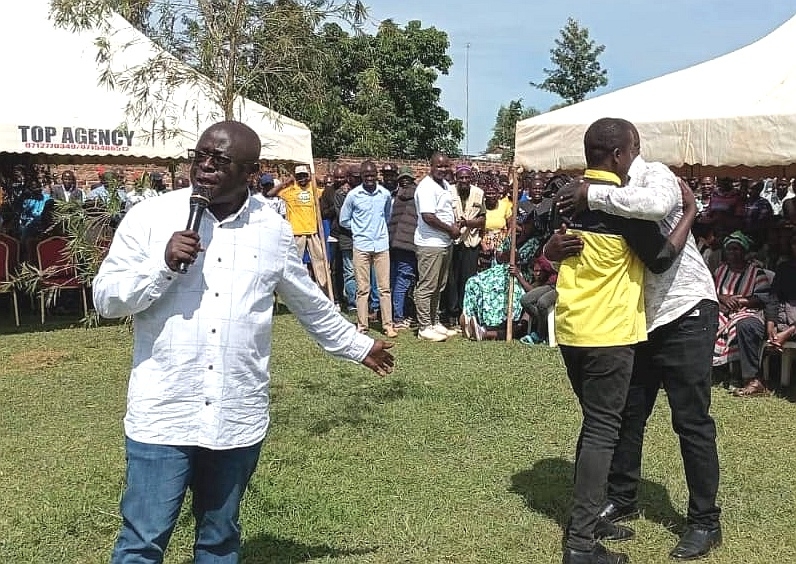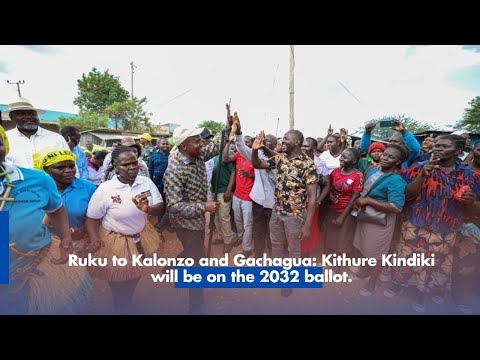The just concluded celebration commemorating Kiswahili World Day as a Kenyan gift language to the world cum pride of Africa held on July 7 globally, is most welcome.
It's a big win and gain for Kenyan language scholars, researchers, tutors and activists.
The official declaration was made by the UN Educational, Scientific and Cultural Organization on November 23 during its 41st Member States’ session held in Paris, France, backed by the official languages of the African Union, the East African Community and the Southern African Development Community regional blocs respectively.
Tourism CS Najib Balala says the move is the country’s pride and a historic time as Kiswahili, the first African language is recognised and acknowledged by the United Nations.
According to Global Voices—an international multi-lingual organization of writers, translators, academics and digital rights activists—currently, of 7,100 languages of the world, 28 per cent are in Africa some less widely spoken than others.
Currently, English is the official or second language in 27 out of the 54 countries in Africa, and French is the official language in 21 of them.
Despite the existence of 2,140 local languages in Africa, English, French and Arabic, Kiswahili is spoken by close to 300 million people as a second language by millions of people spreading rapidly across more than 14 countries.
They are Tanzania, Kenya, Uganda, Rwanda, Burundi, the Democratic Republic of the Congo, South Sudan, Somalia, Mozambique, Malawi, Zambia, Comoros, Oman and Yemen in the Middle East.
Kiswahili language the pride of Africa whose motto was: Kiswahili for Peace, Prosperity and Regional Integration stem from the decision of the 41st Session of the UNESCO held on November 5, 2021, which gave Kiswahili priority by approving applications for World Kiswahili Day.
Foremost has been Nobel Laureate Wole Soyinka the Nigerian writer, poet and playwright who since the 1960s repeatedly called for use of Kiswahili as the transcontinental language for Africa.
The African Union the “united states of Africa” nurtured the same sentiment of continental unity in July 2004 and adopted Swahili as its official language.
As Joaquim Chissano (then the president of Mozambique) put this motion on the table, he addressed the AU in flawless Swahili he had learned in Tanzania, where he was educated while in exile from the Portuguese colony.
The highest political offices in East Africa began using and promoting Swahili soon after independence. Presidents Julius Nyerere of Tanzania (1962–85) and Jomo Kenyatta of Kenya (1964–78) promoted Swahili as integral to the region’s political and economic interests, security and liberation.
Dr Josephine Dzahene-Quarshie, a Swahili professor at the University of Ghana says Africa needs to have a national structure to recognise heroes and experts who have moved Kiswahili to great heights.
They are the late Prof Ken Walibora, Prof Sheikh Nabhany, Prof Mwenda Mukuthuria,Prof Kimani Njogu,Prof Nathan Oyori Ogechi, Prof Issa Mwamzandi ,Dr Bitugi Matundura,Prof Hezron Mogambi, Prof Kendagor Mosol among others.
The influence Southern African Development Community adopted Kiswahili as its fourth official language in 2019 in addition to English, Portuguese and French has seen the states of Botswana, South Africa, schools teach Kiswahili.
In Burundi Kiswahili is a compulsory subject in primary school, and it was made compulsory in 2007 while Rwanda adopted it as an official language in 2017.
Kiswahili is taught in over 2000 institutions across major universities and colleges globally.
Piedmont Global Language Solutions, a US-based language services provider, says approximately 90,000 people speak Kiswahili in the US in more than 100 universities, colleges, and schools in elementary, middle and high schools in the US.
Most of the chartered schools mostly African American children offer Kiswahili as a course at St. Lawrence University, Harvard, Ohio, Yale, Stanford, and Princeton.
Elsewhere, Kiswahili is taught in academic institutions from Japan in the East to Mexico in the west, Great Britain, Germany, Canada, Poland, Mexico, Russia, Japan, China, India and Australia.
This should be awake up call to the political class and policymakers to rethink our budgetary allocations on research and motivation of language tutors and scholars in boosting the global language.
There are many benefits of the Kiswahili language, including African identity, culture and remarkable history which enhances the credibility of researchers.
According to language pundits improved political will, language policies, planning, and research areas like linguistics is key to success.
Research money to promote the virtues of Kiswahili as a common language, infrastructure support to build classrooms for teaching Kiswahili, sufficient funding, and online and offline libraries furnished with Kiswahili texts and learning materials throughout Africa will also help boost the Swahili language.
Edited by Kiilu Damaris
“WATCH: The latest videos from the Star”














